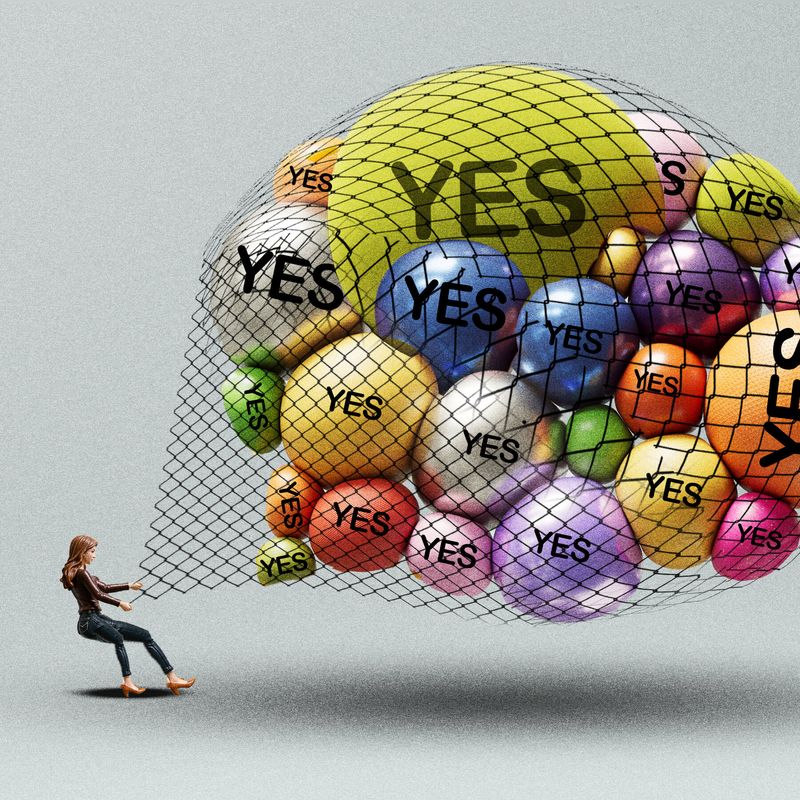17 Signs Someone Is A Bad Influence On You, Psychologists Warn
Sometimes, people don’t hurt you in obvious ways but leave you feeling drained, off, or confused after every interaction.
These subtle influences can be just as damaging as more overt ones, seeping into your daily life and impacting your well-being.
Recognizing these signs is the first step toward safeguarding your emotional health and ensuring that the people around you contribute positively to your life.
1. You feel exhausted after spending time with them

Even short interactions with certain people can leave you emotionally wiped. It’s not just about being introverted or needing alone time; it’s the feeling of carrying an invisible weight after spending time with them. That exhaustion isn’t just physical; it’s mental and emotional.
When someone constantly drains you, it’s a sign of a negative influence. You’ll notice this exhaustion doesn’t occur around everyone, just specific individuals who seem to sap your energy. It might be their constant negativity or the way they monopolize conversations, leaving you with little space to breathe.
Imagine leaving a coffee shop and feeling like you’ve run a marathon, even though you’ve just been sitting and chatting. Recognize these patterns and consider how often this happens. Protecting your energy is crucial to maintaining emotional balance. Find ways to limit interactions or create boundaries that preserve your peace and well-being.
2. They always downplay your goals or good news

You leave the conversation second-guessing yourself when your enthusiasm is met with lukewarm responses. Instead of celebrating your wins, they might say something like, “That’s nice, but…” or “Are you sure that’s a good idea?” This behavior can make you doubt your accomplishments and decisions.
Such individuals have a unique way of making your goals seem smaller and less significant. Their dismissive nature can chip away at your confidence, causing you to question your path and ambitions. Over time, these subtle put-downs can slow your progress and dim your excitement.
Recognizing this pattern is crucial. Surround yourself with those who genuinely celebrate your achievements. Seek out people who lift you up and share in your joy, rather than those who cast a shadow on your success. Your dreams deserve a supportive audience, one that fuels your motivation rather than drains it.
3. You find yourself doing things just to avoid their disapproval

You’re not making choices—you’re managing their reactions. When you constantly adjust your actions to avoid someone’s disapproval, it can lead to an unhealthy pattern of people-pleasing. This person might not even openly disapprove, but their subtle cues are enough to make you alter your behavior.
This reactive way of living steals your autonomy and pushes you to prioritize their expectations over your own needs and desires. The more you bend to avoid disapproval, the more power you inadvertently hand over to them, making it hard to reclaim your own voice and choices.
Identifying this pattern can be liberating. Start by setting small boundaries and listening to your own needs. Rediscover what truly makes you happy and fulfilled, independent of their influence. Remember, living authentically means making decisions based on your values, not on someone else’s judgment.
4. They subtly guilt you into saying yes

Even your “no” sounds like an apology. When someone uses guilt as a tool to get what they want, it can be difficult to assert your own boundaries. They might phrase requests in a way that makes you feel selfish for declining, or remind you of past favors to coax you into compliance.
This manipulative tactic plays on your sense of obligation and kindness. Over time, it becomes challenging to resist their requests, and you might find yourself saying yes to things you’d rather not do. This can lead to resentment and burnout, as your needs are continuously sidelined.
Recognizing when guilt is being used against you is the first step to reclaiming your power. Practice saying no without justification. Your time and energy are valuable, and you deserve to spend them on your terms, without unnecessary guilt or pressure.
5. Your boundaries constantly feel negotiable around them

They push limits just to see how far you’ll bend. This constant negotiation of boundaries is not only exhausting but also erodes your sense of self. When someone frequently tests your limits, it can be hard to maintain the lines you’ve drawn for your well-being.
These individuals often disregard your comfort zones, whether it’s by showing up unannounced or expecting favors without consideration for your circumstances. As a result, you might feel like your boundaries don’t matter, slowly eroding your confidence in enforcing them.
Setting and maintaining firm boundaries is essential. Start by clearly communicating your limits and sticking to them, even when challenged. Remember, people who respect you will honor your boundaries, while those who don’t may not have your best interests at heart. Protect your space and peace.
6. They turn every situation into something about them

Your pain becomes their story. Your joy makes them compete. These individuals have a knack for redirecting any conversation to focus on themselves. Whether you’re sharing a personal triumph or a difficult moment, they manage to make it about their experiences, needs, or feelings.
This behavior not only undermines your experiences but also creates a dynamic where your emotions and stories are secondary. Over time, you might find yourself holding back from sharing, knowing that the spotlight will inevitably shift away from you.
It’s crucial to recognize this pattern and address it. Healthy relationships involve mutual sharing and support. Aim to surround yourself with people who listen as much as they speak, showing genuine interest in your life. Your stories and emotions are valid, and they deserve to be heard and respected.
7. They rarely show up unless they need something

Support is a one-way street. You might notice that your interactions with them primarily revolve around their needs or crises. When you reach out for support or companionship, they’re often unavailable or dismissive, highlighting a glaring imbalance in the relationship.
This pattern can leave you feeling used and undervalued, as though your friendship is only worthwhile when it benefits them. Over time, this lopsided dynamic can foster resentment and a sense of alienation.
Recognizing this imbalance is vital for your emotional health. Seek out relationships that are reciprocal, where support flows both ways. Surround yourself with people who are there for you as much as you are for them, ensuring a more balanced and fulfilling connection.
8. They say “I’m just being honest” after every rude comment

It’s criticism with a disguise. Under the veil of honesty, some people deliver cutting remarks that can undermine your self-esteem. They might claim they’re just being real or speaking their truth, but the impact of their words can be deeply hurtful.
This behavior can make you question your worth and second-guess your actions, fostering self-doubt. It’s crucial to discern the difference between constructive feedback and thinly-veiled insults masquerading as honesty.
Addressing this pattern involves setting clear boundaries regarding acceptable communication. Genuine honesty should aim to uplift, not diminish. Surround yourself with individuals who offer support and constructive insights, helping you grow rather than bringing you down.
9. You catch yourself keeping things from them to avoid judgment

You edit your truth around them. This self-censorship reflects a fear of being judged or misunderstood, which can stifle your authenticity. Whether it’s about your dreams, decisions, or personal experiences, withholding information to avoid critique is a red flag.
When you start feeling like you must filter what you share, it can lead to a sense of isolation and loneliness. You may find yourself second-guessing your instincts and doubting your choices to accommodate their opinions.
Recognizing this behavior is a step towards reclaiming your voice. Embrace relationships where you feel free to express yourself without fear of judgment. Authentic connections involve mutual acceptance and encouragement, allowing you to be your true self.
10. They only offer support that benefits them

Even their kindness comes with strings. Offers of help or support are often accompanied by expectations of repayment or ulterior motives. This transactional approach to relationships can leave you feeling manipulated rather than genuinely cared for.
Such individuals might provide assistance in a way that emphasizes their role as the benefactor, subtly reminding you of their generosity. This can foster feelings of indebtedness and dependency, rather than genuine gratitude or connection.
Understanding this dynamic allows you to seek out more genuine and selfless relationships. True support is given freely, with no expectation of return. Focus on cultivating friendships where kindness is shared without strings attached, enhancing mutual respect and trust.
11. They constantly compare you to others

And it never feels like you measure up. This constant comparison can erode your self-esteem, making you feel inadequate or less than. Whether it’s about achievements, looks, or lifestyle, being measured against others can foster a sense of inferiority.
These comparisons might be framed as motivation or constructive criticism, but they often leave you feeling disheartened and undervalued. It’s essential to recognize this pattern and understand that self-worth shouldn’t be determined by how you stack up against others.
Focus on your unique strengths and achievements. Surround yourself with individuals who celebrate your individuality and encourage personal growth without comparisons. Your journey is your own, and it deserves to be honored for its distinct path.
12. You feel smaller when you’re around them—not empowered

Your confidence fades in their presence. Some individuals have a way of undermining your self-worth, making you feel less capable and confident. Their words and actions might not be overtly negative, but the impact is clear: you feel diminished.
Whether it’s through subtle put-downs, dismissive comments, or overshadowing your achievements, the result is a shrinking sense of self. Over time, this can sap your confidence and leave you feeling inadequate.
Recognizing this influence allows you to reclaim your power. Engage with people who empower and uplift you, fostering an environment where you feel confident and valued. Your sense of self should thrive, not diminish, in your relationships.
13. They bring chaos into your calm

Their drama has a way of becoming yours. Some people thrive on chaos and drama, and their presence can disrupt your peace. They might bring unnecessary conflict or stir up tension, leaving you to deal with the aftermath.
This chaos often comes in the form of constant crises, urgent needs, or emotional upheavals that demand your attention and energy. The impact is a disruption of your calm, replacing tranquility with turmoil.
Identifying this pattern is key to preserving your peace. Set firm boundaries around what you’ll engage in and focus on maintaining a calm and stable environment. Your serenity is paramount, and it’s okay to step back from those who disturb it.
14. They dismiss your emotions as “too sensitive” or “dramatic”

You stop trusting your gut. When someone consistently dismisses your emotions as overreactions, it can erode your self-trust. You might start questioning your feelings, wondering if you’re indeed too sensitive or dramatic.
This invalidation of your emotions is a form of gaslighting, subtly making you doubt your perceptions and instincts. Over time, it can lead to a disconnect from your emotional reality, undermining your mental and emotional health.
Acknowledging this behavior is crucial for regaining confidence in your emotional landscape. Surround yourself with people who validate and respect your feelings, reinforcing your right to experience and express emotions without judgment.
15. Your life just feels heavier with them in it

And that feeling doesn’t go away. Some relationships weigh you down, filling your life with stress and negativity. It’s not just about one bad day; it’s a pervasive feeling of heaviness that lingers whenever they’re around.
This emotional burden manifests as constant tension, anxiety, or a sense of being trapped. It’s crucial to recognize when someone consistently adds to your life’s challenges rather than complementing your journey.
By identifying this weight, you can make informed decisions about how to move forward. Prioritize relationships that bring joy and support, and consider distancing yourself from those that consistently add strain. Your emotional well-being should be a priority, and it’s okay to lighten your load by reevaluating who is part of your life.
16. They Encourage Reckless Behavior

Imagine being urged to take risks you’re uncomfortable with. Sometimes, a friend might push you towards reckless behavior, like skipping work or engaging in illegal activities. This type of influence can be thrilling, yet it’s often a red flag.
Such individuals may not have your best interests at heart, prioritizing excitement over safety. Their thrill-seeking nature could lead you into trouble, damaging your reputation or well-being.
If someone consistently encourages you to ignore your instincts or moral compass, they might not be the best influence. Consider whether their presence adds unnecessary risk to your life.
17. They Drain Your Energy with Negativity

Negativity can be as infectious as a cold. Picture someone who’s always complaining or seeing the worst in situations. This kind of energy can be draining, leaving you feeling exhausted and bleak after every interaction.
Instead of offering constructive advice or solutions, they focus on problems. Their pessimism becomes a cloud over your sunny day. It’s crucial to recognize when someone’s outlook is affecting your mental health.
Surround yourself with those who uplift and inspire rather than those who pull you into their vortex of negativity. Energy vampires can hinder your personal growth.







